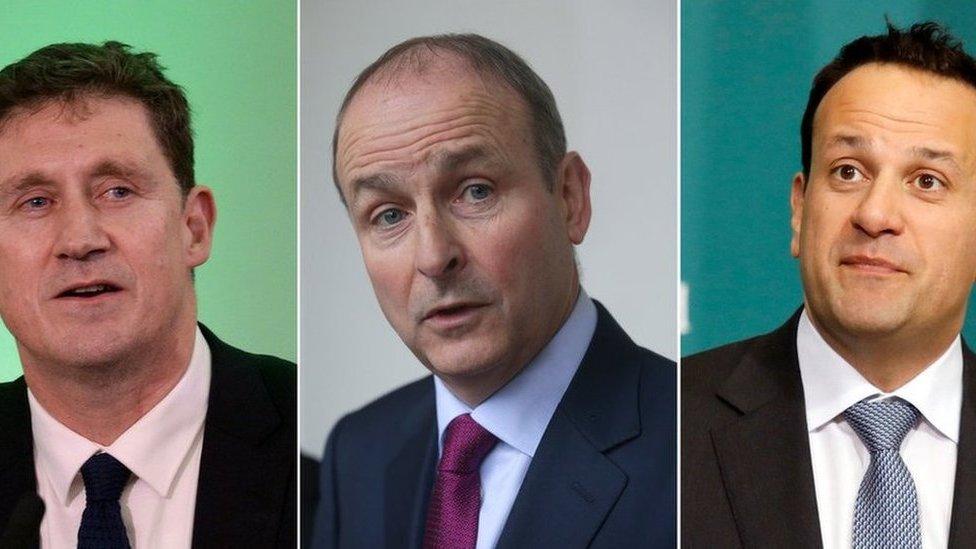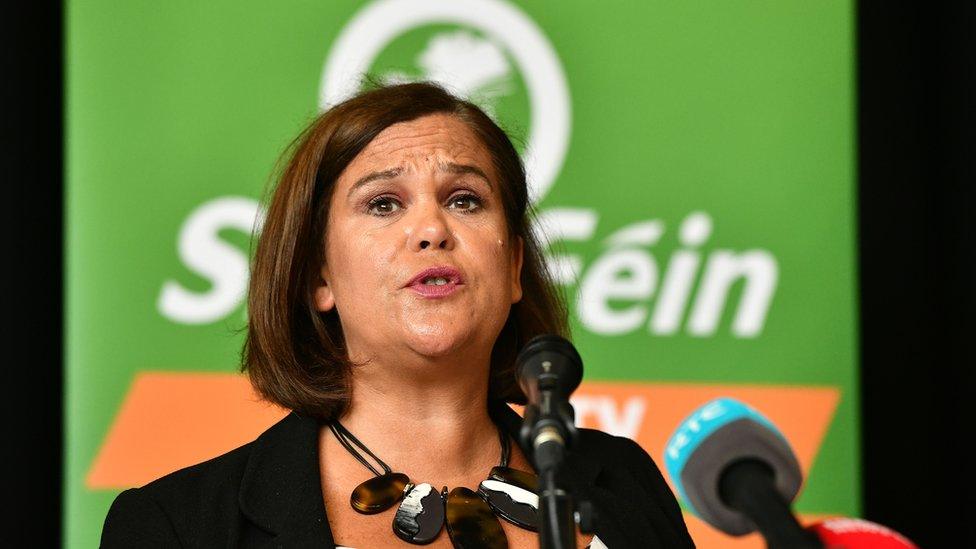Four Irish parties to be questioned over election data use
- Published

Green Party leader Eamon Ryan, Fianna Fáil leader Micheál Martin and Fine Gael leader Leo Varadkar are leaders in a coalition government
The Republic of Ireland's Data Protection Commissioner has contacted four political parties over their use of data during elections.
Helen Dixon is carrying out an audit on how Sinn Féin, Fianna Fáil, Fine Gael and the Green Party process data concerning electors and voters.
It comes after the parties admitted to using fake pollsters in the past.
On Wednesday, the Irish Independent, external reported that Sinn Féin activists posed as members of a fake polling company.
The newspaper said it had obtained a 2015 internal Sinn Féin document.
In the document, it said, party members were given fake ID badges and instructions on how to pose as fake pollsters, to survey households before and during elections.
In a series of interviews, Sinn Féin representatives have defended the now-abandoned practise.
The party's housing spokesman, Eoin Ó Broin, denied lying to people and said what happened was common practice during elections.
He added that the information was collated anonymously.
It is the second time in recent months that the Data Protection Commissioner has written to Sinn Fein - the largest opposition party in the Republic of Ireland - about its use of data.

Mary Lou McDonald is leader of Sinn Féin
Fine Gael, Fianna Fáil and the Green Party form a coalition government in the Republic of Ireland.
Sinn Féin is the largest opposition party.
Fine Gael leader and Tánaiste (deputy prime minister) Leo Varadkar has admitted that his party used volunteers and students to knock on doors and carry out surveys.
He said the party had only used private polling companies since he became party leader in 2016.
Fianna Fáil admitted that up until 2007 it engaged in similar behaviour, after previously denying it was involved in fake opinion polls.
It said party members posed as market researchers to survey voters.
The third governing coalition party - the Greens - also admitted some party activists may have posed as pollsters more than a decade ago in an isolated number of cases.
The party said that the practise is "not something that the present day party approves of".
Data sources
In a statement, the Irish Data Protection Commissioner said: "As part of the DPC's ongoing audit of political parties that commenced recently, all political parties have been asked to account for the source of each field of personal data they process concerning electors/voters."
Strict data GDPR rules came into effect in May 2018, after all the political parties say they had ceased to use fake pollsters.
But other opposition parties who did not engage in such behaviour have accused their rivals of deceiving voters.
Related topics
- Published15 April 2021
